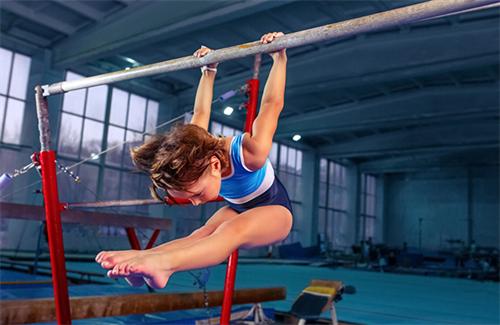Are Youth Sports Becoming Too Professionalized Too Early?

At 5 a.m., an 8-year-old gymnast begins her daily training. Her parents stand on the sidelines, recording every move with a professional camera. After the competition, she’s harshly scolded by her coach over a 0.3-point difference. This scene is not unique—it’s a growing reality in today’s youth sports training landscape, which is becoming increasingly younger, more professionalized, and highly commercialized.
In recent years, sports education has drawn increasing attention from parents, many of whom hope that professional training will open a pathway to elite sports careers for their children. To them, the years before age 12 represent a golden period of neuroplasticity—a critical window for developing motor skills and physical coordination. Neuroplasticity refers to the brain’s ability to reshape and adapt following physical training, a widely recognized concept in sports science. Fearing their child might “fall behind,” many parents opt to begin high-intensity, specialized training as early as possible.
However, behind this push for professionalism lies a cost—the overextension of childhood and a departure from the true essence of sport. Today, youth sports training is becoming increasingly utilitarian. Trophies, scores, prize money, and potential career paths have become the metrics by which families and institutions measure success. Many children undergo systematic, specialized training before the age of 10, often at the expense of broader developmental opportunities.
Studies show that among girls who begin competitive sports as early as 4 or 5, nearly 60% lose interest in physical activity by the age of 10. Children may develop a diminished tolerance for failure, and the obsession with winning and losing can distort their values—causing them to focus solely on outcomes rather than the perseverance, teamwork, and self-challenge that sports are meant to foster.
Meanwhile, the rapid commercialization of youth sports only intensifies the issue. From costly custom gear and genetic testing for talent selection to overseas training programs, a vast industry chain fueled by parental investment, institutional operation, and capital interests is operating at full speed. Behind the business opportunities, more and more children are being placed on a professional athlete track before even reaching adulthood, becoming players in a market-driven competition.
We must ask ourselves: as youth sports arenas increasingly mirror professional athletic contests, are we truly nurturing future champions—or are we creating mechanical medal machines? Sport should be a joyful, character-building experience that fosters curiosity and passion—not a utilitarian race to "win at the starting line."
Children grow in many different ways—physically, emotionally, and mentally. A well-rounded approach to sports should support their natural curiosity, respect their individual rhythm, and create space for trial and error. Instead of focusing solely on winning or measurable success, we should encourage them to enjoy the process of moving, playing, and improving—helping them build confidence, resilience, and a lifelong love for being active.
RECOMMEND FO YOU



